|
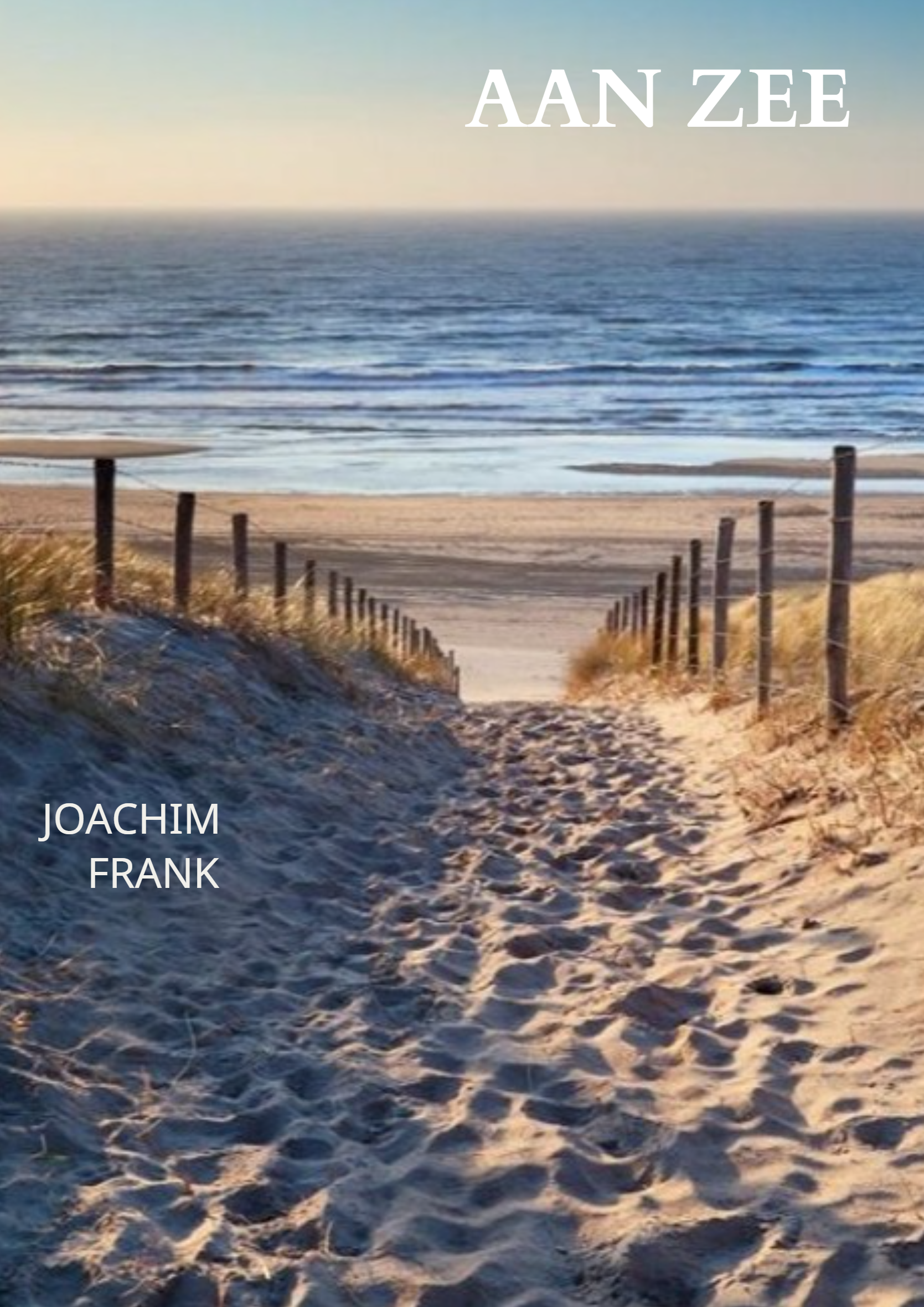
|
BY
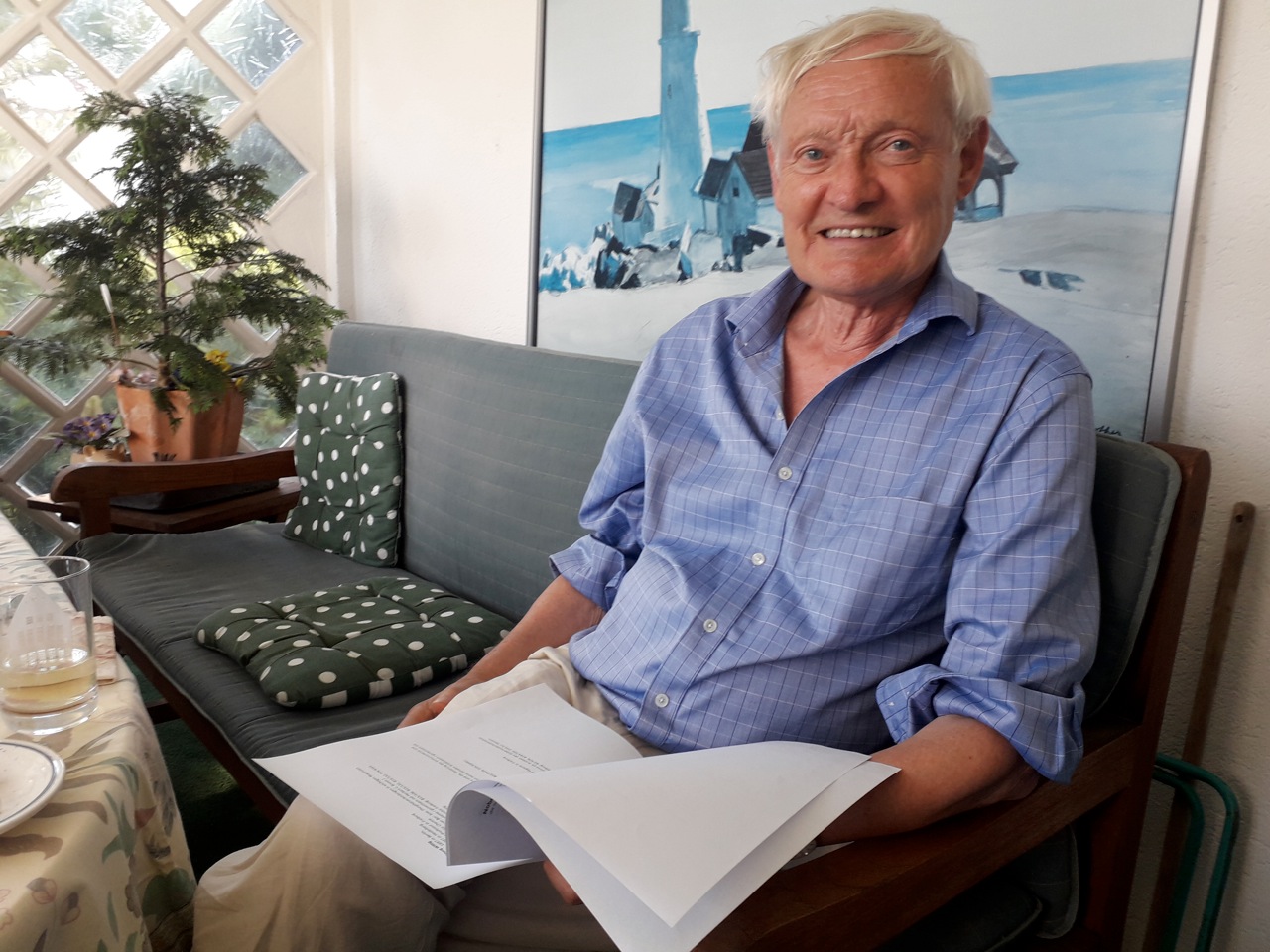
Photo by Udo Helmholz
JOACHIM FRANK
(Columbia University,
USA)
A Member of Poets and
Writers Directory
2006 Fellow of the American Academy
of Arts and Sciences
2017 Nobel Prize Winner in Chemistry
|
|
ISBN:
978-9-403638-12-6
(Europe)
2021 |
ISBN:
978-1-937030-79-7
(USA)
2019 |
|
AAN ZEE
ADVERTIZED
AND RECOMMENDED
BY
AMAZON.COM
ON AOL.COM!
BUY IT ON
AMAZON.COM
BUY IT
ON AMAZON.CO.UK
BUY IT ON AMAZON.DE
BUY
IT ON AMAZON.NL
BUY
IT ON AMAZON.FR
BUY
IT ON AMAZON.ES
BUY IT ON AMAZON.COM.AU
|
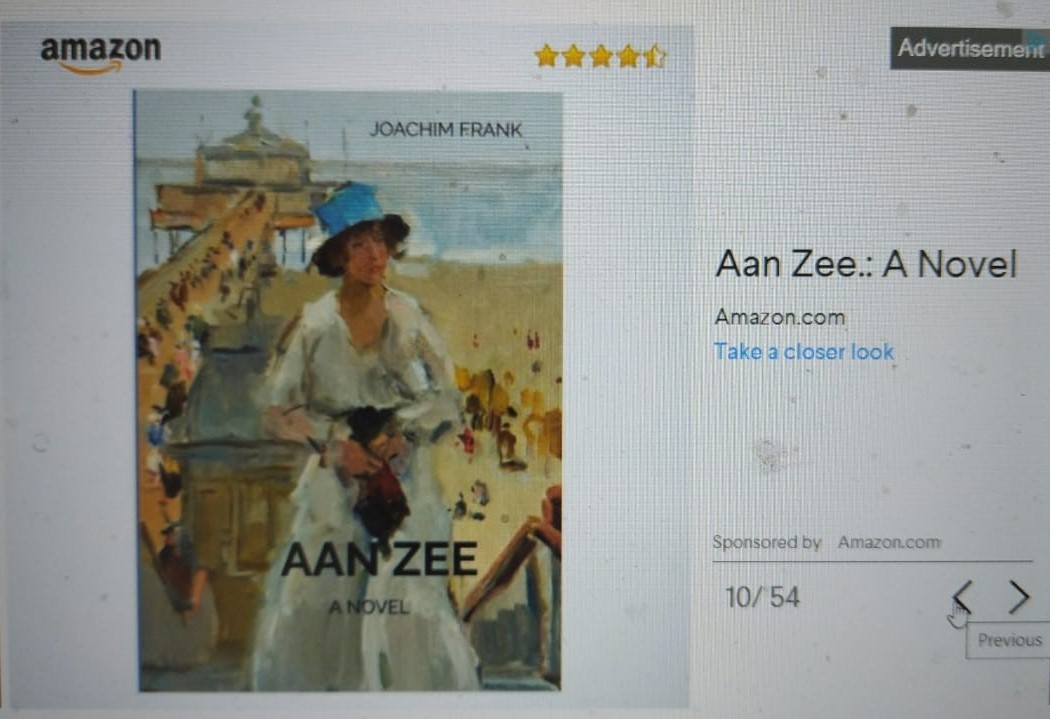 |
AAN ZEE
ADVERTIZED
AND RECOMMENDED
BY
AMAZON.COM
ON AOL.COM!
BUY IT ON
AMAZON.COM
BUY IT
ON AMAZON.CO.UK
BUY IT ON AMAZON.DE
BUY
IT ON AMAZON.NL
BUY
IT ON AMAZON.FR
BUY
IT ON AMAZON.ES
BUY IT ON AMAZON.COM.AU
|
|
ORDER AAN ZEE NOW

TAKE ADVANTAGE
OF OUR SUMMER PROMOTIONS |
|
|
|
|
'Hubert
anticipated the trip with excitement. It was less than
three months away. Europe was this crammed old world of
infinite complexity, a coffee house full of strange foreign
voices, full of dissonances, yet, oddly enough, a house
where everybody knew his place. In the center of it was the
piece of Germany that had been his home, surrounded by
well-wishing yet suspicious neighbors. It was still
possible to get a rude welcome when speaking German in
Holland, and in a way Hubert felt that by speaking English
he'd enter that country in a masquerade, a wolf in a sheep's
clothing, and thereby avoid the unpleasantness stirred up by
the past. But he had been less than two years old when the
Germans had invaded the Netherlands, and it would be easy to
explain that underneath his clothing there was yet another
lamb.
Because there was the other Europe of hope,
the increasingly happy intermingling of voices, the
sophisticated fabric of urban civilization. There was even
the newly relaxed demeanor of custom officers -- traditionally
the barking phalanx of national pride. It was this new land
he couldn't wait to see again. But there was also
the thrill of traveling, of chance encounters, of new
possibilities to redefine his life. He watched himself in
the mirror for promises that might be written on his face:
Intellectual depth? Affection? Sophistication in
love-making? Those were all qualities he claimed to
possess. Or was it a face that would cause its bearer to be
dismissed as superficial, uninviting, boring, just because
of mistakes in the mechanisms of countenance? He tried out
some of his facial muscles and immediately disapproved of
what he saw: a strange succession of grins.'
|
|
|
Aan Zee is
about the tragic-comic search of a man for his identity between
two cultures. It is a modern Bildungsroman, in the sense
that the heroe searches for a purpose and is transformed in the
process. Hubert Belovski, a German-born scientist now living in
the United States of America, is confronted with his past in the
shape of a former girlfriend, as he goes to Scheveningen in the
Netherlands, following an invitation to speak at a Conference on
Fluid Dynamics. Aan Zee is the name of his hotel, which has seen
better days. After a brief rekindling of passion, he is left
feeling more alone than before. On his ways to his aunt in
Austria, he is struck by a viral flu that leaves him immobilized
and in her care for months, enough time to reflect on his life.
He finally recovers and, in Rip van Winkle fashion, returns into
a world that has moved on.
|
|
|
|
'A perhaps apocryphal story has it that Werner Heisenberg,
the physicist, once said, “When I meet God, I’m going to ask him two
questions: why relativity? And why turbulence? I really believe he’ll have
an answer for the first.” Joachim Frank’s Aan
Zee may
not answer the second question fully but nonetheless is a gloriously
readable, witty, engaging, entertaining, and, ultimately, deeply
philosophical novel, whose underlying rhythms inform both a narratology of
turbulence and a— not of course surprising in a Nobel laureate—
sophisticated sense of the mystery of how seemingly linear flow spawns
chaotic whirls both in our lives and in nature alike.
I especially loved the tour de force of turbulence of the
chapter that describes a phantasmagoric railway journey to Innsbruck,
wherein the protagonist Hubert, like Wallace Stevens' “Ludwig Richter,
turbulent Schlemihl/ Has lost the whole in which he was contained.” The
ensuing flood of “strange days indeed,” to use John Lennon’s phrase, leave a
reader vertiginously caught up in what in Finnegans
Wake James
Joyce wrote of as the "tubular jurbulance at a bull's run over the assback
bridge" before dropping the reader, dazed and satisfied, back on (at least
momentarily) dry land.'
Dr.
Michael Joyce,
Professor
Emeritus of English, Vassar College
|
|
|
|
"The things
that most interest me about this novel are two: first, a remarkably complex,
rich and nuanced portrayal of the scientist. There are hardly any literary
novels that give such full-blooded portrayals of scientists; science fiction
novels have battalions of them but they don’t interest me much, with a few
exceptions. In that sense, this is your novel’s real accomplishment. The
scientist’s descriptions of things he sees and experiences and the
ruminations of his mind are strikingly precise and vivid.
Second, the language used
throughout the narrative has a certain poetic elegance about it; I guess you
have a poetic sensibility that marks the writing every step of the way.
Normally, as I see it, scientific precision and poetic elegance do not go
hand-in-hand, except in really exceptional cases.
Besides these two remarkable
qualities, I enjoyed the ironic undertone that you are able to employ with
great ease. I could cite many examples of this. The chapter 26, with Helga’s
deadbeat of a letter, and Aunt Frieda’s anger in a later chapter are among
the many dramatic moments that make one want to keep on reading the novel.
The description of the hotel is powerful in its dark gothic strangeness.
The novel is indeed an
interesting Bildungsroman, a transatlantic literary work that explores/dramatizes
the workings of a scientist’s consciousness in its dealings with both its
innate intellectual tendencies and its interests in mundane, worldly
passions and desires."
Dr.
Suresh Sumnath Raval,
Professor of English, University of Arizona
|
|
|
|
|
"I enjoyed Joachim Frank's book, Aan Zee, thoroughly.
I marveled at his witty and well-observed touches of description, such as at
the breakfast room: 'The conversations sounded subdued, as though the guests
were afraid to have their breakfast taken away.' Vivid. And the dramatic
flair of many scenes: I found the one with Hubert at the nudist colony, and
Hubert's dialogue with Krantz particularly memorable."
Ricardo Nirenberg, Editor,
Offcourse
Literary Journal |
|
|
|
|
"I've enormously enjoyed reading Joachim Frank's novel and felt deeply
engrossed. Hubert's intensity of his observation; of landscapes, other
characters, of his doubts, memories, and dreams are convincing and whole. It
is one of the things in Frank's book that I enjoyed the most.
His utter candor is apt to appear and surprise the reader at any moment.
Hubert feels things deeply and describes them in such
fantastic detail, it was compelling to follow his journey. The novel
includes visual and tactile sensibilities, a richness that is
wonderful. In the midst of his tribulations there is hopefulness, optimism
and generosity."
Ellen Kozak, artist,
New York
|
|
|
|
|
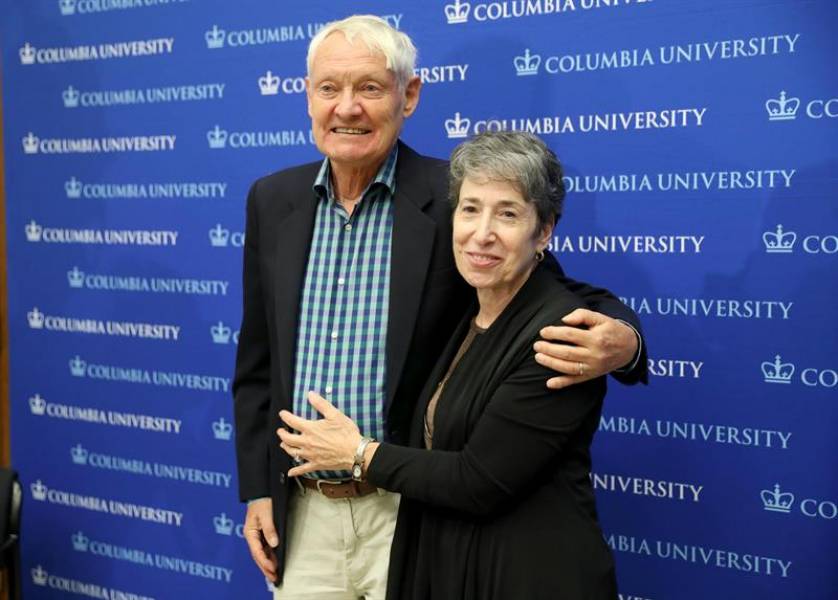 |
 |
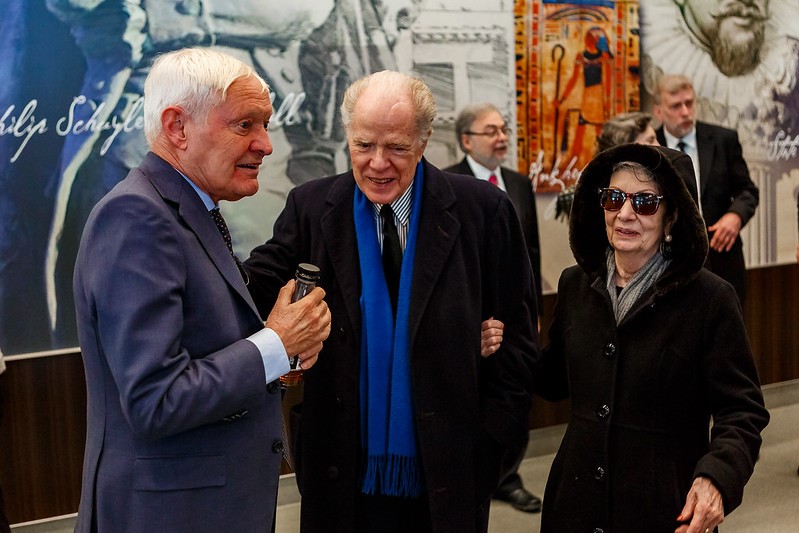 |
|
JOACHIM FRANK AND HIS WIFE CAROL SAGINAW |
JOACHIM FRANK, A 2017 NOBEL PRIZE WINNER |
JOACHIM FRANK WITH PULITZER PRIZE WINNER IRON WEED
AUTHOR WILLIAM KENNEDY AND HIS WIFE IN 2018 |
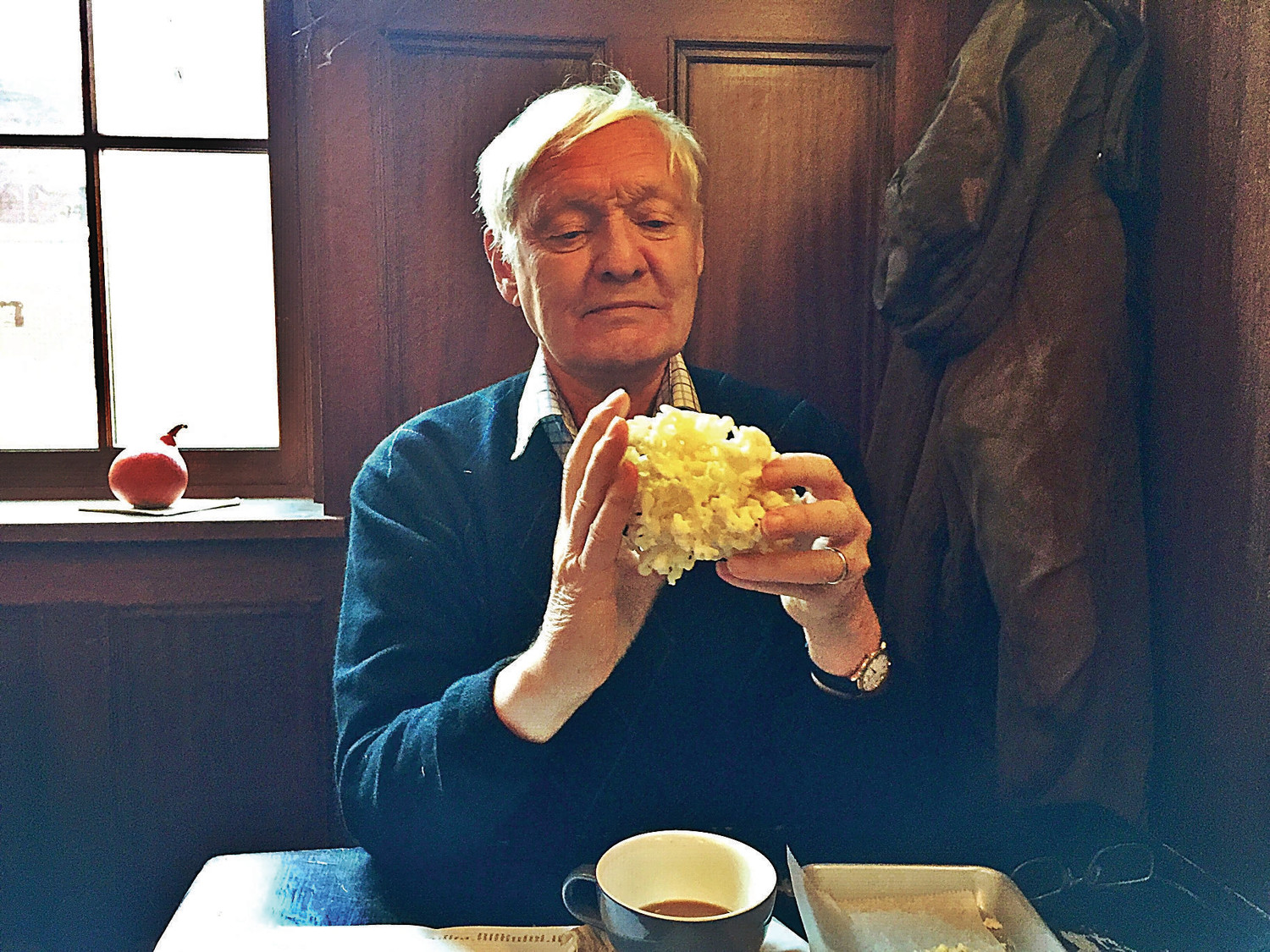 |
On his way to one conference in Vermont, Joachim Frank passed
through forests. He would never see the same way again.
He saw deep into nature, and felt
the essence of his life's work.
'All the sudden it occurred to
me that in every single cell, leaf and tree the ribosomes are rotating. It
was a mind-boggling experience.'
Heather Bellow, 'Nobel
winner Joachim Frank, a part-time Alford resident, peers deep into life's
machinery,'
The Berkshire Eagle
(December 9, 2017).
|
JOACHIM FRANK HOLDING A THREE-DIMENSIONAL MODEL OF THE RIBOSOME,
A BIOMOLECULE HE HAS STUDIED WITH THE ELECTRON MICROSCOPE |
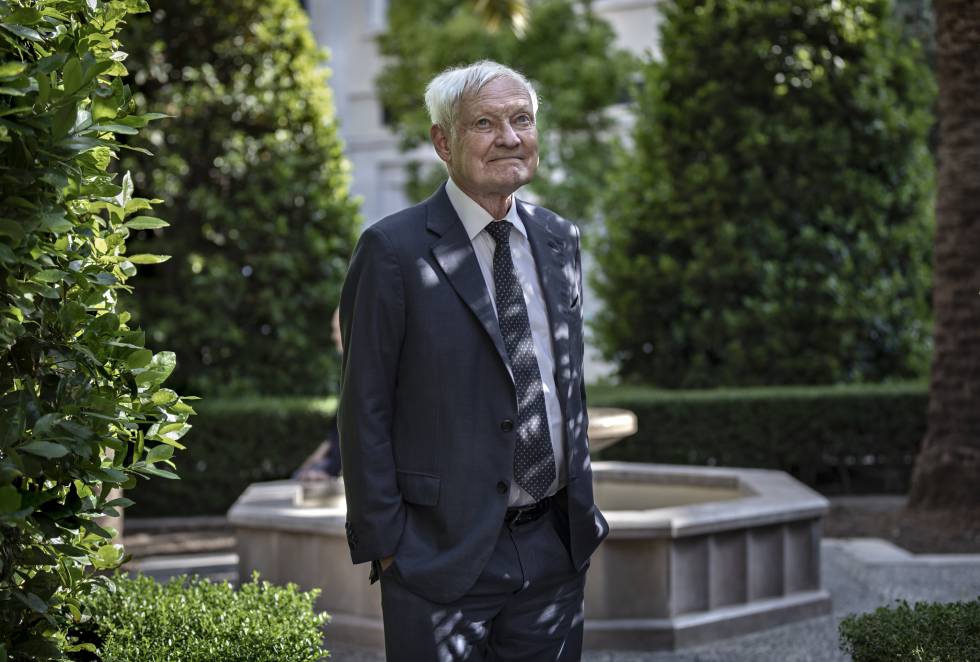 |
Joachim Frank
is a scientist and a writer living in New York. He has published a
number of prose poems and short stories. His creative work has been
published in literary and travel journals. He is the author of two other
still unpublished novels,
Narcis and
The Observatory. He is a Professor at
Columbia University, USA. In 2017 he
shared the Nobel Prize in Chemistry with Jacques Dubochet and Richard
Henderson.
|



